Wise advice from Dr Doug Wilson, expert in ageing
Ageing – it happens to all of us if we’re lucky. But when the knees start to play up, and the eyesight begins to go, it’s easy to feel annoyed, rather than grateful!
But according to physician Dr Doug Wilson, not all ageing is created equal. After decades working in the pharmaceutical and medical fields, he’s gathered an array of data on things big and small that can make a significant difference to the way you feel as you age – something he outlined in his book, Ageing for Beginners. He says he has a vested interest in the field of ageing well – after all, he points out, it’s what he’s trying to do himself. At almost 83, Dr Doug says he’s “slackened off a bit” but is still writing children’s books and, as a consultant for Ryman Healthcare helps ensure their villages are structured in a way that best supports residents to make the most of their golden years.
We caught up with Dr Doug to get his science-based opinion on what makes for excellent and enjoyable ageing.
Why do people age differently?
The landmark study out of Dunedin, which has tracked over 1000 individuals born in Dunedin in a 12 month period in 1971 and1972 reported that chronological age is not as good indicator of your biological age.
954 participants, who were all 38 at the time, had biological ages (assessed by 18 measures such as the function of the heart, lungs and muscles) that ranged from under 30 years to nearly 60 years old. That variation, according to Dr Doug, really comes down to three things – lifestyle, medical intervention and genetics, but mostly lifestyle.
“It’s obvious that we can make a huge difference,” he says. “Up until you reach 70 years old your genetics account for only 25% of your biological age. The other 75% is lifestyle and medical. There’s an opportunity there.” After 70 your family history of longevity appears to be more predictive of your own life expectancy.

How do we age well?
Ageing, while not a negative in itself, does increase the risk of a raft of diseases from dementia to cancer. Researchers have been busy trying to discover ways to slow the ageing process, with the idea that by doing so we can reduce the frequency of these ailments.
But despite the best efforts, there has been little success so far. So, in the meantime, Dr Doug encourages us to take heed from proven science, and make changes we know will affect our wellbeing as we age.
Get proactive about medical check-ups
A long and healthy later life requires the obvious – avoiding anything that might take you before your time. Dr Doug says that’s involves getting regular check-ups – even if you feel fine. That gives you and your GP the chance to catch those ‘silent killers’ like high blood pressure, cancer, blood lipids and high cholesterol before they do any damage.
“Modifying risk factors for those will give you a better opportunity to live longer. We’ve reduced the death rates from heart disease and stroke by 90 percent just with medications that drop high blood pressure and lipids and lifestyle improvements,” explains Dr Doug.
 Get out and move your body
Get out and move your body
You’ve heard the message – exercise is almost a silver bullet. Thousands of studies have shown its value for everything including mental and brain health, managing chronic conditions like diabetes, and general wellbeing factors like sleep and stimulating your brain. When it comes to ageing well, exercise is a must-do, even if you’ve never exercised in your life.
“The science is clear. Anything you do can make a difference, even if you’re starting in your seventies,” says Dr Doug. “Aerobic exercise improves joints, heart, breathing and your brain.
“Walking is the sensible opportunity,” he adds, “even if you don’t do anything else. If you sit all the time, your risk of premature death is 30 percent higher. With balance, strength and flexibility you reduce the risk of falls, all the while improving your life, outlook and health, and making you feel more positive.”
Consider the Mediterranean diet
What you eat has a huge impact on your overall health, but what makes up an optimal diet for ageing well is controversial.
“We’re in Tiger Country now!” says Dr Doug.
He says the style of eating with the most documented benefits is the Mediterranean diet – rich in vegetables, nuts, grains and oily fish, and low in processed foods and red meat. The outcomes are 20 to 30 percent improvement of risk of early death, even for those with already established risk factors.
“And the more olive oil you can toss on, the better,” says Doug. “That’s surprising, but multiple studies have been done on it.”
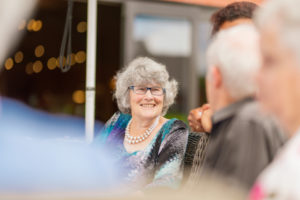 Cultivate relationships and be happy
Cultivate relationships and be happy
Personal connections and an overall sense of happiness are also important factors in longevity and ageing well. Dr Doug explains that if you’re solitary and not by choice, you run a higher risk of death.
“Loneliness is as toxic as being a heavy smoker,” he says.
The Adult Development Study out of Boston shows personal relationships are the most powerful driver of living longer, with positive outcomes.
“Your resistance to disease goes up and you live a happier, healthier, longer life,” says Dr Doug.
Your wider social network is important too – and your general feeling of happiness, which is associated with far better outcomes and longer life. But happiness is something you need to work at.
“Happiness is only 50 percent governed by genetics,” says Dr Doug. “But the rest is up to you – happiness is associated with better and longer health spans.”
Making an effort to catch up with friends and family, gratitude journals, and spirituality are all proven ways to increase your happiness level along with your life expectancy.
Quit smoking
Dr Doug’s advice around smoking is simple:
“Forget about smoking – that’s a killer. Give it up now.”
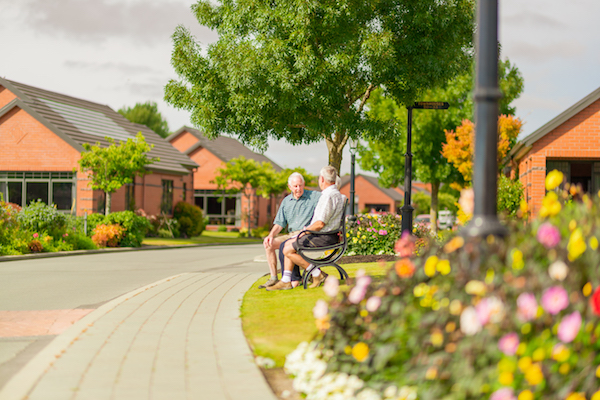
Be fit, healthy and happy to age well
There you have it: if you want to age well, have a longer life with less disease and disability, and be happy – it’s mostly up to you. Start before you’re really old – eat a Mediterranean diet, get regular exercise, check in with your doctor from time to time, and have fun with family and friends.
That last job could be the most important – your happiness depends on socialising with other people, and keeping up those healthy diet and exercise regimes depend so much on a positive outlook. You may even make new friends who are trying to age well too – bonus!






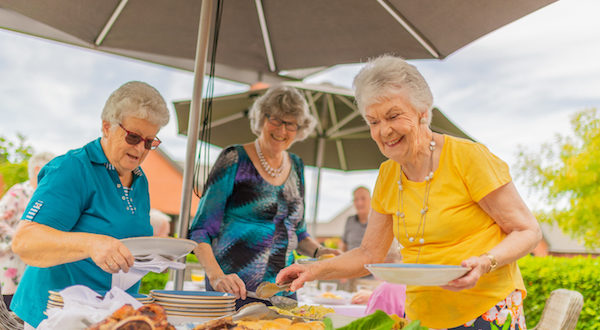
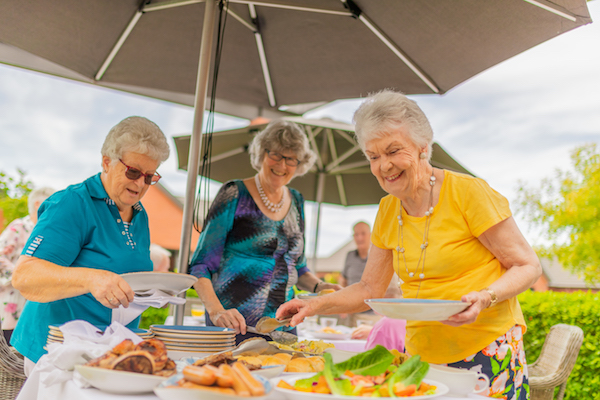
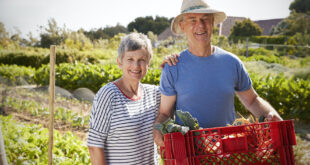
Join the Discussion
Type out your comment here:
You must be logged in to post a comment.